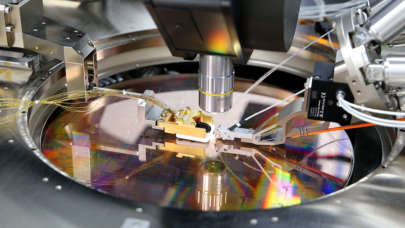The 2019 ASC Student Supercomputer Challenge (ASC19) has kicked off with a highly competitive preliminary contest, as more than 300 college teams from around the world compete for 20 slots in the finals. Among the challenges they will tackle is how to use the Community Earth System Model (CESM) in supercomputing to reproduce global climate change processes.
Global climate change is a major issue of common concern to the international community. Recently, the 24th United Nations Climate Change Conference concluded in Katowice, Poland. Representatives from nearly 200 countries agreed on rules to implement the 2015 Paris Agreement, the long-term goal of which is to keep the increase in global average temperature to well below 2 °C above pre-industrial levels and limit the increase to 1.5 °C. To achieve this goal requires not only international cooperation, but also support from climate scientists in theory, experiment and computing. The study of climate change is critical to the sustainable continuation of human civilization.
The CESM earth simulation system is the most widely used climate model in the world today and one of the main climate models adopted by the United Nations Intergovernmental Panel on Climate Change (IPCC) for the fifth and sixth assessment reports. CESM is a coupled climate model including major modules for atmosphere, land, ocean, sea ice, and land ice. Based on observed climactic information as an initial state, it uses the physical, chemical, and fluid dynamic and other equations to replicate the process of climate change on supercomputers.
CESM has been used to simulate interactions between marine ecosystems and greenhouse gases; the effects of ozone, dust and other atmospheric chemicals on the climate; the influence of carbon cycles on the atmosphere, oceans and surfaces; and the impact of greenhouse gases on the upper atmosphere. Many other potential applications have yet to be explored. To verify the accuracy of simulations, scientists typically simulate past climate conditions and then compare the results against data observed. Through constant verification, scientists aim to find neglected factors in natural variability, modifying the prediction methods to create more accurate models.
The CESM challenge requires participating teams to use supercomputers to replicate the process of global climate change in the decade before the Industrial Revolution and the first decade of the 21st century. It provides college students an opportunity to experience the most cutting-edge climate change science engineering in the world.
Meanwhile, CESM presents students with a certain degree of complexity due to the difficulty of migrating the model to the machine itself. Although the model provides numerous mature machine configurations for reference, this process requires a deep understanding of the compiler and required library functions in the machine. Moreover, CESM contains a large number of codes with a relatively long running time, requiring teams to optimize the CESM in a fairly broad range. In addition to the code optimization, the load balance between the modules in CESM and the combination of MPI and OMP can also be considered.
Zhou Tianjun, representative of supporting organizations of the CESM challenge, researcher and assistant to the director of the Institute of Atmospheric Physics of the Chinese Academy of Sciences, and deputy director of LASG State Key Laboratory, noted that the production of estimated data in the IPCC’s assessment reports relies heavily on supercomputers, so simulation speed is vital to global climate change research. The development and modelling of climate models is an integrated discipline, and calls for growing talents in the supercomputing field. Zhou said the CESM challenge is the most difficult among its counterparts in past ASCs and expressed a hope that ASC19 will stimulate students’ interest in this area and boost collaboration between climate simulation and supercomputing.
ASC Student Supercomputer Challenge is sponsored and organized by China and supported by related experts and institutions in Asia, America and Europe. It aims to promote exchange and development among young supercomputing talents across countries and regions, improving their application level and research capabilities, taking advantage of the driving force of supercomputing to promote technological and industrial innovation. The annual ASC Student Supercomputer Challenge began in 2012, and as the largest supercomputer challenge in the world, has attracted more than 7,000 participants since its inception. ASC19 is jointly sponsored by the Asia Supercomputer Community, Dalian University of Technology and Inspur Group. More than 300 teams representing over 200 colleges and universities across six continents participated in the challenge. The finals will be held at Dalian University of Technology from April 21st to 25th.
Learn more about ASC at https://www.asc-events.org/




























































